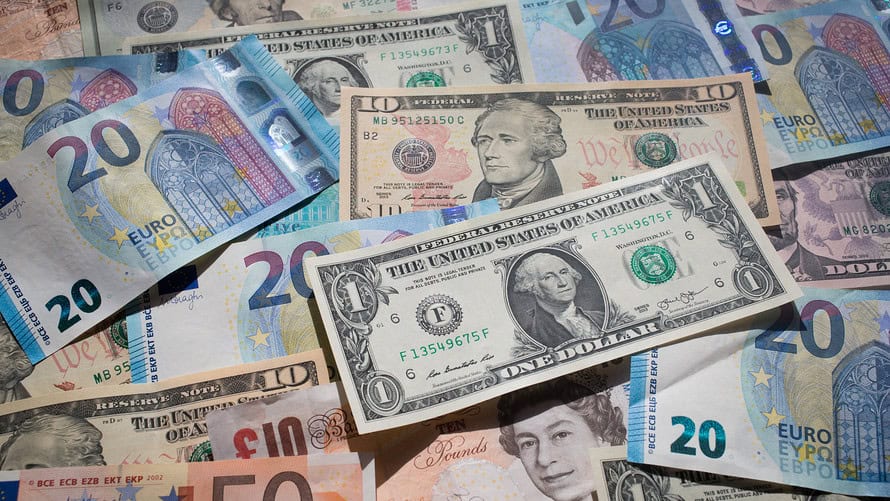
Dollar index firms as Brexit, economic data drag on sterling, euro
The U.S. dollar inched higher versus its main rivals on Friday, as U.S. traders returned from the Thanksgiving holiday, and investors closely tracked an intensifying decline in crude oil.
The global oil benchmark, Brent for January delivery LCOF9, -5.45% was down nearly 5%. Growing output continues to weigh on the oil price, despite a recent cold snap. The price drop hurt financial assets across the board, including stocks and commodity-linked currencies.
The Norwegian krone USDNOK, +0.7253% led developed market losers, trading near its lowest level since May 2017, with one dollar fetching 8.5915 krone, up from 8.5349 late Thursday in New York. Canada’s dollar USDCAD, +0.3412% also weakened versus its U.S. rival, leaving the greenback to rise to C$1.3208, from C$1.3190.
In emerging markets, oil-linked currencies, the Russian ruble USDRUB, +0.9279% drifted sharply down, recently at 66.224 ruble per one dollar, compared with 65.603 ruble late Thursday.
As for the greenback’s trade against major rivals, the ICE U.S. Dollar Index DXY, +0.46% was up 0.1% at 96.830, headed for a 0.4% gain this week.
Elsewhere, European markets continued worrying about Brexit developments ahead of a key summit this weekend.
The future for Gibraltar — a British-held peninsula in the south of Spain — following Brexit is the latest hurdle to emerge during the U.K.’s divorce from Brussels, with Spain demanding to get more of a say in the future of the key transport hub.
Meanwhile, embattled U.K. Prime Minister Theresa May has been trying to appeal to the British public to support the deal she agreed to with the EU on Thursday. The deal had led the pound to climb higher.
On the data front, November PMIs for the eurozone underperformed consensus estimates, with the composite index coming in at 52.4, versus 53 expected, which also weighed on the euro. A reading of at least 50 indicates improving conditions.
The weaker-than-expected data dealt a blow to any investors looking for a eurozone rebound in the fourth quarter, market participants said.
“Continued weakness will have many beginning to doubt the ECB’s ability to hike rates next year,” said Win Thin, global head of currency strategy at Brown Brothers Harriman. “Quantitative easing will undoubtedly end in December but talk of another TLTRO [targeted longer-term refinancing options] is feeding into a more dovish take on the ECB.”
The euro EURUSD, -0.5700% was down $1.1334, a five-day low, versus $1.1404 late Thursday in New York.
Sterling GBPUSD, -0.6600% last bought $1.2804, down from $1.2878.


